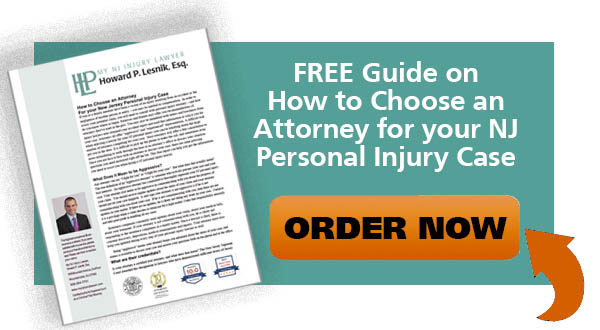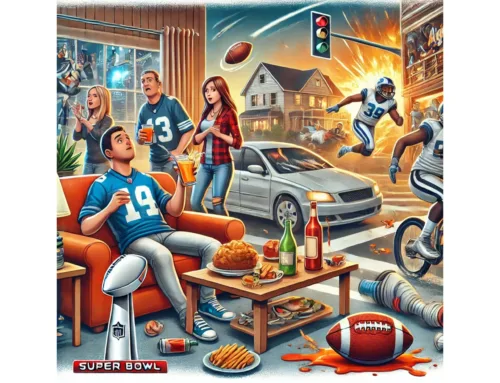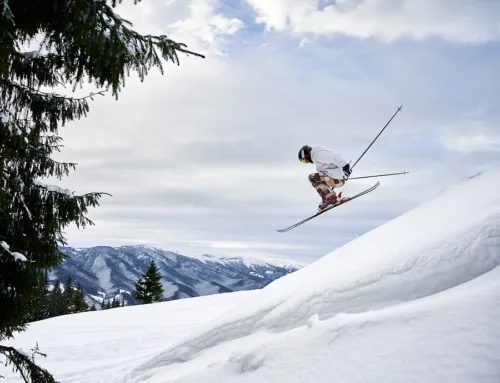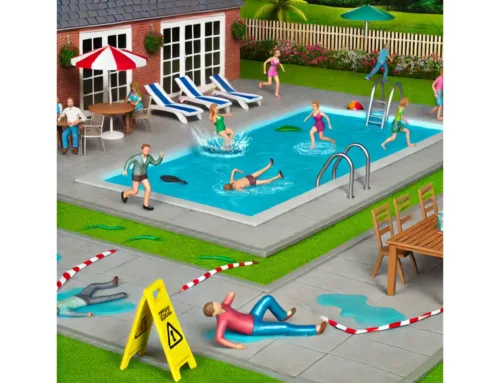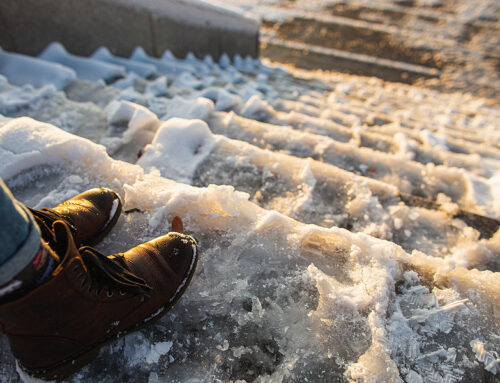If you’ve suffered a serious injury on someone else’s property, you deserve to be fairly compensated if the owner of that property was liable for your accident. But what, exactly, does it mean to be “liable”? Establishing liability in Court can be complex, especially in premises liability cases.
Who Owns the Property Where You Fell
The first step in establishing fault in your premises liability case is determining WHO owns or maintains the property where you fell. This is the most important part of your premises liability case. Not only must you notify the correct party of your accident, it also determines what level of care the owner had toward keeping you safe. That responsibility, or duty of care, is determined by the type of property (commercial, residential, government or charitable) where your accident took place. Just as important is the reason you were at the location where you were injured.
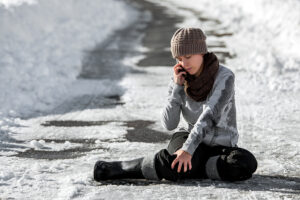
Business and Commercial Property:
The most common type of premises liability case occurs on commercial property. Defendants in these cases have a duty to prevent, remove, or warn of safety hazards that they know about, and to conduct regular inspections of the premises to discover any potential safety hazards and rectify them. For example, having a grocery store employee assigned to do a safety walk of the store on a regular schedule provides constructive notice of hazards, while a customer approaching the courtesy desk to inform an employee of a spill in a particular aisle provides actual notice of a hazard. Thus, businesses are considered to have notice of dangerous conditions if the condition has existed for long enough that they could reasonably have discovered it by following appropriate safety procedure, whether or not anyone actually did so.
Private and Residential Property:
A private property owner or homeowner must warn a social guest of dangerous conditions that he has actual knowledge and the guest is unaware. They do not have to protect against or discovery unknown conditions or hazards. They also are not responsible for sidewalks on their property.
Dangers on Public Property:
Public entities are protected by the Tort Claims Act and are very complex. You must first notify the public entity of your claim within 90 DAYS of your accident or you may be barred from even making a claim. In order to establish liability against a public entity, you must show that their hazard was palpably unreasonable!
Charitable Organizations:
Charities enjoy a protection from being sued for most accidents on their property. This makes if very difficult to file a claim against a church or a YMCA organization in New Jersey.
Why Were You There When You Fell?
There are three main categories that most people fall into: invitee, licensee, or trespasser. Property owners owe the highest duty of care to invitees.
An invitee is when a person is at a commercial location or property. The person does not need to be a customer of the business, and the store does not even have to be open at the time of the accident. The business is also responsible for sidewalks and parking lots at its location.
A licensee is a person present at the property with the owner’s consent. A licensee is also a social guest. A property owner or homeowner must warn a social guest of dangerous conditions that he has actual knowledge and the guest is unaware. They do not have to protect against or discovery unknown conditions or hazards.
Trespassers are owed the lowest duty of care. Trespassers are people who do not have permission to be present at the property. Owners do not have to keep their property safe for trespassers. However, there is an exception for infant trespassers. Because of their young age, children may lack discretion for their safety. If an owner has something on his property that it attractive to children, such as a swing set or pool, an owner will be responsible if a child is injured on his property.
Why Hire My NJ Injury Lawyer Howard P. Lesnik
- I always offer a free strategy session with no obligation.
- I never charge a client a fee unless I recover cash settlement.
- I personally provide exclusive one on one devotion to each client.
- I handle all insurance communication, applications and forms at no charge.
- I have obtained countless successful verdicts and settlements for my clients
- My office provides accident investigation services, including obtaining police reports, ambulance reports, 911-calls, witness statements, surveillance video, and all medical reports and records.
- I will litigate your case. If your case cannot be settled with the insurance company, I will file a lawsuit for your accident claim. Most cases settle before trial. But I also look forward to presenting any claim before a jury if necessary.
- I have 20 years of experience handling New Jersey personal injury cases.
About My NJ Injury Lawyer Howard P. Lesnik
Howard Lesnik began practicing personal injury law in 2001, and is vastly skilled in car accident claims, including taking depositions, motion practice, and trial experience. Howard personally handles every accident case himself and does not farm them out to other attorneys or offices. He brings 20 years of experience, countless successful settlements and verdicts, and a drive to help NJ car accident victims get justice they deserve against enormous insurance companies.
Howard is extremely excited by his record of success stories both in and out of the court room. However, he is also honored about how his clients’ experiences with his firm. Howard has 100% positive reviews on Google, Martindale, AVVO and Lawyers.com. Howard is a member of the Ethics Committee and makes sure that all his clients get the attention they deserve and strives to make sure they are satisfied throughout the entire process.
Contact MyNJInjuryLawyer
If you or a loved one is injured in a slip and fall accident in NJ, you should contact an attorney familiar with handling these claims. An experienced NJ Injury Lawyer will know how to obtain the incident report, preserve the security video of your fall, and contact the insurance company for the apartment so you can make a claim for your injuries. My NJ Injury Lawyer Howard P. Lesnik, Esq. offers free strategy sessions to address any issue or questions you may have your slip and fall claim in NJ.
Please contact NJ Injury Lawyer Howard Lesnik, Esq., immediately if you were involved in a slip and fall accident. I personally handle NJ personal injury cases on a regular basis. Please contact me now by email, by phoning 908.264.7701, or by completing the form to the right to schedule your complimentary 30-minute strategy session.


